Eco concrete, its density and basic characteristics
Eco-concrete is one of the names of such a mortar as expanded clay concrete, which is a rather popular and sought-after material that belongs to the category of light concrete mixtures. In the role of a filler in such a composition is expanded clay, which has a small stiffness and low weight.
In addition to expanded clay, cement is included in the building mass, sometimes sand, resins or gypsum flour are added to it.
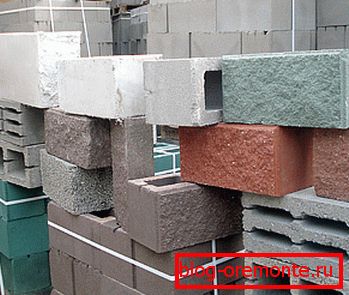
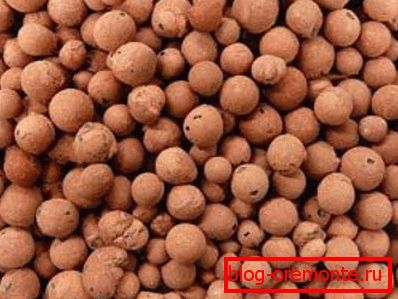
Classification
This material is divided into the following types:
- Thermal insulation;
- Constructional;
- Constructional and thermal insulation.
Constructional керамзитобетон
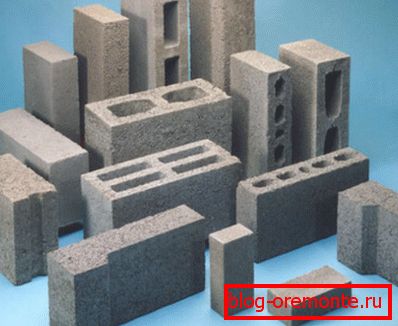
This mixture is used for the construction of bearing wall structures and other partitions that must withstand quite serious loads. The density of the structures of such a mixture can be from 1.2 to 1.8 tons / cubic meter, and the compressive forces will be from 0.1 to 0.5 tons / sq. Cm.
This kind of concrete has the following advantages:
- Hung frost resistance up to 500 freeze cycles;
- Small weight in comparison with simple heavy concretes.
Thermal insulation керамзитобетон
For the production of insulation applied concrete with low strength. This property allows the created layer to keep the room warm for frosty weather and cool on a hot summer day for a long time.
The density of the warm insulating layer of expanded clay blocks varies from 350 to 600 kg / cubic meter, and the compressive strength is from 5 to 25 kg / sq. Cm.
Constructional and thermal insulating expanded clay solution
This type of building mass is the basis for the creation of piece units and wall panels.
It has the following characteristics:
- Durability from 700 to 1200 kg / cubic meter;
- Compressive strength can be from 35 to 100 kg / sq. Cm;
- Frost resistance from 15 to 50 cycles of freezing and defrosting.
Marking and cost
Marking of expanded clay concrete directly depends on the class of cement used to create it:
- Cement grade "M 50" - grade of concrete "B 3,5";
- Cement brand "M 100" - concrete class "B 7.5";
- Cement brand "M 150" - concrete class "B 12,5";
- Cement brand "M 200" - concrete class "B 15";
- Cement brand "M 250" - concrete class "B 17,5".
The price of expanded clay products directly depends on the brand of mixtures, i.e., the higher the brand, the higher the cost. In addition to the price of the blocks themselves, one should also take into account the cost of delivering them to the building site and the amount of purchased material.

Note! If you are going to order a large amount of expanded clay blocks, you can count on a discount on such a service as transportation of your purchase.
Weight 1 m3
The mass of concrete with a filler in the form of expanded clay depends on its strength and proportions. Expanded clay is endowed with modest indicators of density and weight among all the components of the mass, which means that the more expanded clay will be added during the kneading, the less will be its weight and strength. Instructions for determining and adjusting the weight directly depends on the type of solution.
Note! The severity of a single block with dimensions of 200x200x400 can be from 6 to 29 kg.
Mass of insulating mixture
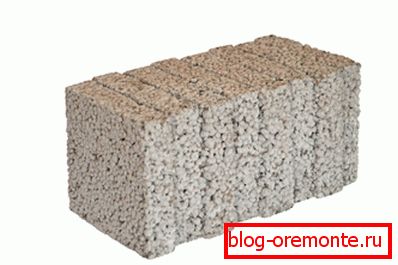
Warm concrete should have a small strength in comparison with other types of mortar. In connection with this property, the gravity of the clay solution is quite small. Its weight indicators can vary from 0.3 to 0.9 t / cubic meter, and the heat output is 0.2 kcal / meters * hour * degree Celsius.
This type of mortar should not be endowed with great density and strength, its modest weight is achieved due to the fact that it contains a large amount of expanded clay.
Note! The mass of the filler itself, i.e. expanded clay can be equal to 350 kg / m3 (for thermal insulation) and 1800 kg / m3 (for construction).
If eco-heat-insulating concrete type is produced with modest mass indices, large-sized expanded clay block (with a diameter of 0.2 cm or more) is used in this process.
Such a filler is pre-fired in specialized technological conditions that contribute to the swelling of components, which makes it more porous.
Main characteristics:
- Mass 0.15-0.2 t / m;
- Volumetric weight 0.35-0.4 t / cubic meter;
Thermal insulation and constructive eco-friendly concrete
This type of product is the clay blocks of the brands below:
- M70;
- M50;
- M35.
Such material has the following technical indicators:
- Bulk density 0.7-1.7 t / cubic meter;
Note! The heavier the keramzite-cement products, the higher their strength.
- Heat transfer coefficient 0.5 kcal / meters * hour * degree Celsius;
- Frost resistance of 25 cycles (for the construction of the base of at least 35 cycles).
Constructional легкий бетон
In comparison with the above options, it is this one that is considered the most durable with a relatively small weight. Apply blocks of this type in cases where it is necessary to facilitate the supporting structure. The small mass of the blocks allows you to do construction work with your own hands without the use of additional equipment.
Constructional материал обладает объемным весом не более 1,7 т/куб.м. При необходимости изделия армируются арматурой. Если понадобится повысить прочностные показатели и упругость изделия, можно в его состав добавить такой компонент, как кварцевый песок. Помимо кварцевого песка в процессе замешивания может быть добавлена и керамзитная крошка.
Note! If tension reinforcement is used, then the grade of the mixture must be at least M200.
Portland cement M400 and higher is used as a binder in the manufacture of lightweight concrete.
Finally
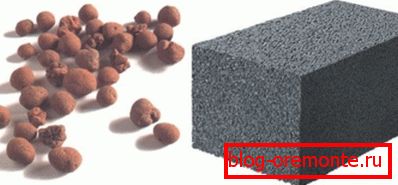
Expanded clay is a lightweight and at the same time sufficiently durable material with excellent insulation performance. In modern construction claydite piece products are chosen for the construction of simple ceilings or external walls of a building.
Another important property of the clay block is its environmental friendliness, for which he got his name. A video in this article will allow you to learn more about the characteristics of this building material and products from it.